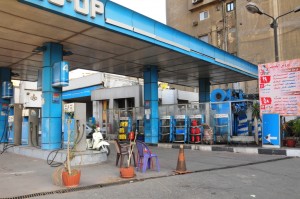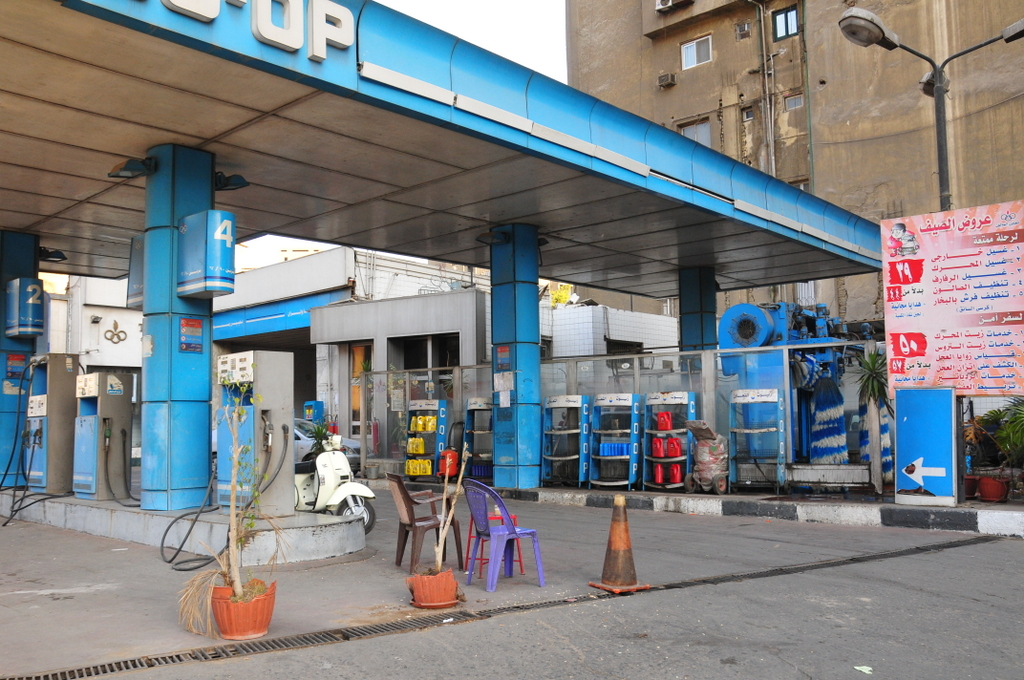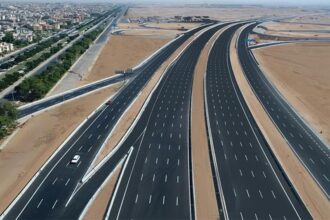
trafficPhoto by: Hassan Ibrahim
By:Lamia Nabil
The Ministry of Petroleum has developed several initiatives to ameliorate the diesel shortage in Egypt. Currently the ministry provides 35,000 litres of diesel, worth $35m, to the market each day. Minister of Petroleum Osama Kamal said that he expected the government to provide increased financial support for petroleum products in the 2012/2013 fiscal year, at a cost of EGP 120bn.
Kamal said that the ministry is monitoring diesel distribution to fuel stations to control diesel smuggling. He added that the Ministry will end supplies of diesel to all stations found manipulating sale prices or smuggling diesel, and will distribute their share of petrol to neighbouring stations.
He added that Ministry diesel distribution will focus on Watanya, Misr, and COOP stations. The ministry owns 1800 fuel stations, totaling 10% of all stations in Egypt.
Mahmoud Nazim, undersecretary of the Ministry of Petroleum, said that the ministry aims to convert cars and vehicles from diesel to natural gas in order to reduce consumption of gasoline and diesel fuel and reduce petroleum imports.
Kamal added that it could be possible to allocate some of the financial support for petroleum products to covering the costs of converting cars from diesel to natural gas. He stressed that natural gas receives approximately a sixth of the financial support allocated to diesel.
Factories will be encouraged to make contracts with the Ministry specifying the quantities of diesel they require in advance. Kamal pointed out that if they do not make such contracts, factories will have to pay market prices for diesel.
Hosaam Arafat, Chairman of the Petroleum Division in the Chamber of Commerce, said that today the division agreed to introduce a proposal to the ministry to increase the daily amount to 40,000 litres.
He added that Egypt’s 400 private sector fuel stations will suffer from the ministry’s policies. Egyptian petrol stations are currently struggling with the year’s third fuel shortage, with motorists across the country forced to wait in long lines to fill tanks.




